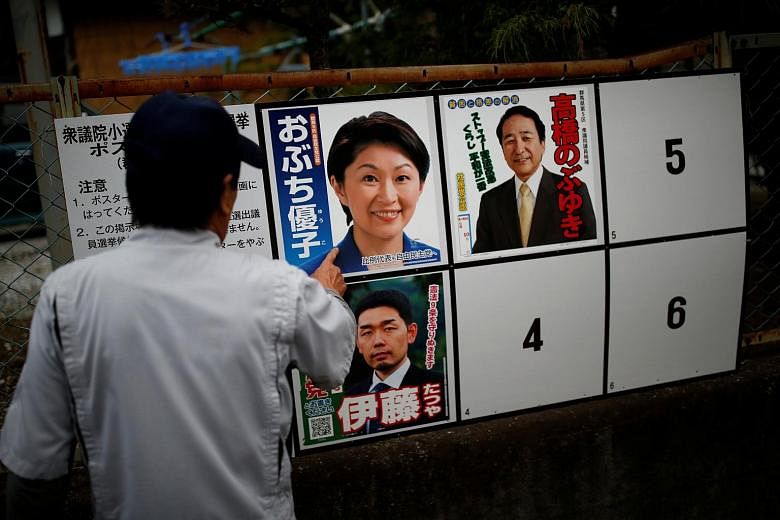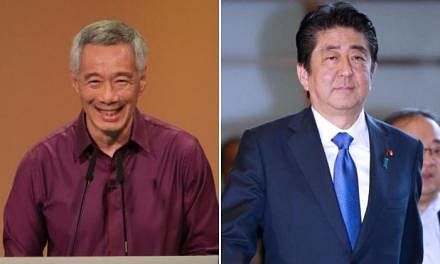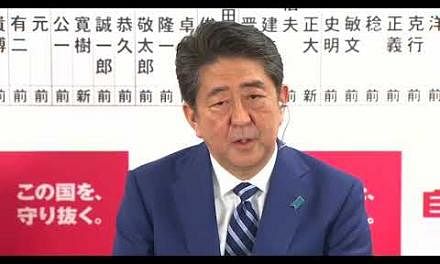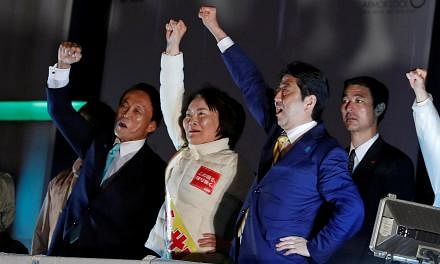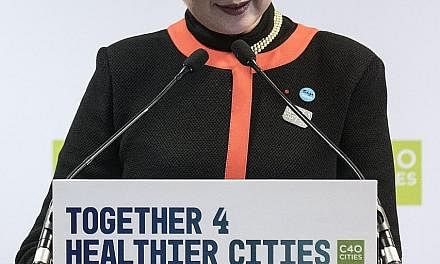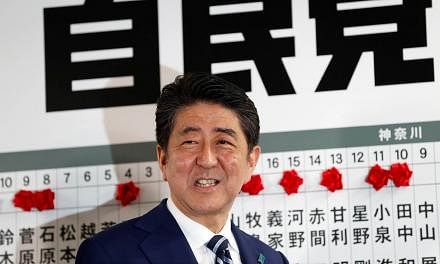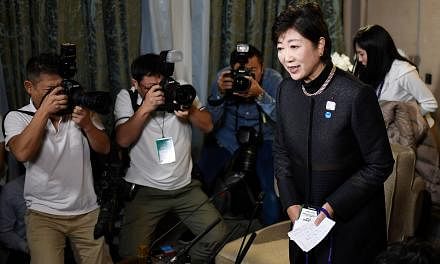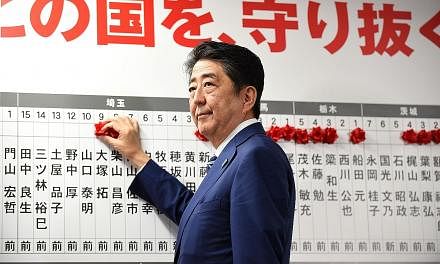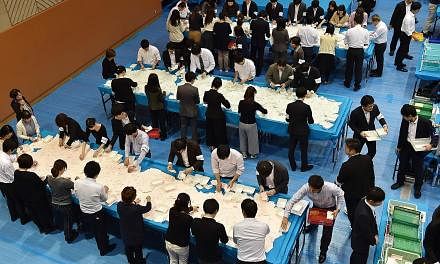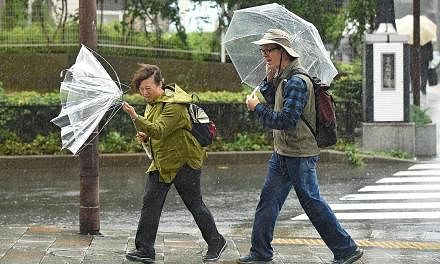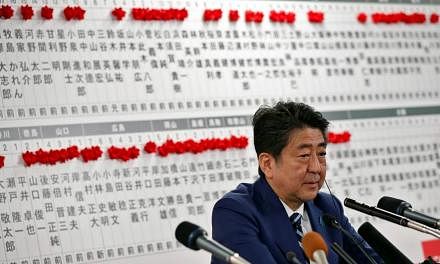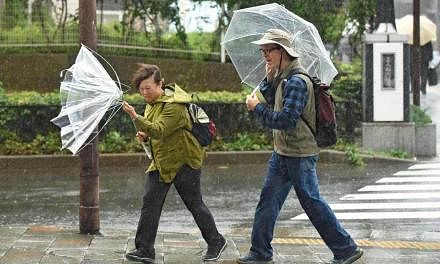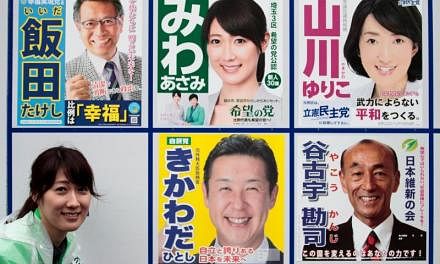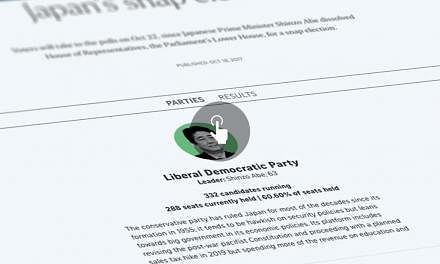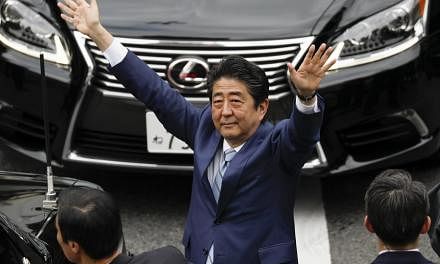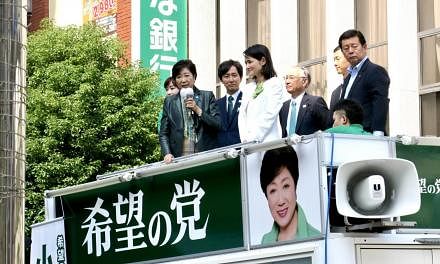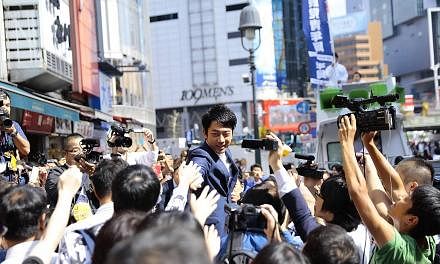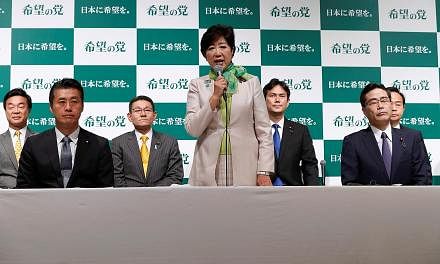TOKYO (AFP) - From campaign mini-vans staffed by "warbler birds" to "gutter lid" politics, a Japanese election has many quirks.
Here are five good ways to win votes in the world's number three economy:
- He who bows, wins
To an outsider, Japanese bow a lot at the best of times and rarely more often or deeper than when politicians are looking for votes.
Campaigners bob up and down in campaign speeches, seeking to demonstrate the proper democratic deference towards voters.
And when the big boss comes to town, there's no limit to the back-breaking amount of bowing.

A 41-year-old candidate who had the good fortune to have Prime Minister Shinzo Abe stump for him took to bowing deeply every time his name was mentioned.
But few took it as far as Mayuko Toyota, who was forced to resign after an audio tape emerged of her violently attacking a male secretary.
She decided to run anyway as a candidate but took to standing outside a station every day, bowing deeply to commuters in apology.
- Beer crates, sake, tuna

To project an image of humility towards the voters, many candidates in Japan improvise a stage to make their campaign stump speeches.
Yukio Edano, 53, leader of the new centre-left Constitutional Democratic Party, stood on two overturned beer crates to address supporters.
Abe himself chose to make his first campaign speech in the middle of a bucolic field in the eastern province of Fukushima, brandishing a locally made sake bottle in one hand and a microphone in the other.
A few days later, he switched to seafood, drawing cheers from a crowd in a fishing port every time he mentioned the local canned tuna.
- Warbler birds

An inescapable feature of an election in Japan are the so-called "warbler birds". These are employed from 8.00am to 8.00pm to travel around constituencies in a mini-van with loudspeakers, endlessly repeating candidates' names and pleading voters to plump for them.
Parties pay good money for the services of the "warbler birds" - so named after their melodious voices - up to 15,000 yen (S$180) per day under election law.
The job is mainly done by women, but men can also be employed - in which case they are known as "crows".
And this being Japan, one of the world's most polite countries, the warbler birds - in between stumping for a candidate - apologise for making such a racket.
- High fives and handshakes

A veteran Japanese politician Shigeru Ishiba once said: "You get the same amount of votes as the number of hands you have shaken." This has given rise to a campaign strategy called "dobuita", or "gutter lids", which means candidates try to visit every corner of a district, as if they were stepping on every gutter.
Political blueblood Abe is by no means above this, rushing from his prime ministerial car to grab supporters' hands and touring every corner of Japan to drum up votes.
- Bags of cash
Running for office in Japan costs a lot of money. It is often said that candidates must have "kaban" - a Japanese word which means "a bag" but in this case implies a bag filled with money.
Candidates running in seats decided by proportional representation have to stump up a deposit of as much as six million yen (S$72,000).
They get the cash back if they win a certain number of votes but otherwise the electoral commission keeps it.
There is an upper limit on campaign expenses - 19.1 million yen plus 15 yen for every voter in the constituency.
